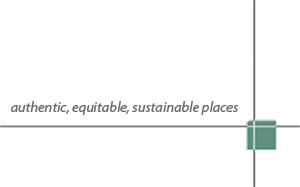As we observe the 50th anniversary of Earth Day, it’s fitting to acknowledge the work of the Thomas Jefferson Sustainability Council, chaired by then- Albemarle County Supervisor David Bowerman (who passed away on March 23.)
The Sustainability Council’s crowning achievement was the 1998 “Sustainability Accords and Vision for Sustainability,” a seminal document that aimed to protect Mother Earth while promoting social equity. An unjust society is no more sustainable than a polluted planet.
Here’s an abbreviated sampling of its 68 objectives.
- Manage population growth while enhancing quality of life.
- Ensure access to good nutrition, housing, education and jobs for everyone.
- Reduce automobile trips and increase transit, bicycle and pedestrian
networks. - Maximize the re-use of already developed areas at an appropriate scale.
- Increase recycling, and reduce waste.
- Create conditions to promote a healthy balance in which societal benefits and
costs are equitably shared by all citizens. - Use more renewable energy.
- Involve citizens in government.
- Preserve biodiversity and protect air and water quality.
- Retain and maintain farmland and forested areas in sustainable ways.
The Sustainability Accords would go on to inspire the principles of the Neighborhood Model (adopted in 2000) that sought to prevent sprawl in Albemarle County’s rural areas by better utilizing land in its designated growth areas. The Neighborhood Model in turn gave rise to master plans in Crozet and along U.S. 29 and form-based codes for Crozet and the Rio Small Area Plan.
In 2011, the federally funded Livable Communities Planning Project built upon the work of the Sustainability Accords to better integrate land use, housing, transportation and environmental planning in our region. That initiative informed Charlottesville’s 2013 Comprehensive Plan update and gave rise to neighborhood-based, small-area planning efforts to reimagine underutilized sites into walkable, inclusive communities such as the strategic investment areas (with form-based code) at Hydraulic Road and Hillsdale Drive, Cherry Avenue, and Starr Hill.
We owe our gratitude to the Sustainability Council. Once Earth Day 2020 is over, however, will its legacy continue to influence the way we care for our planet and each other over the next 20 years, in the wake of the COVID-19 pandemic?
